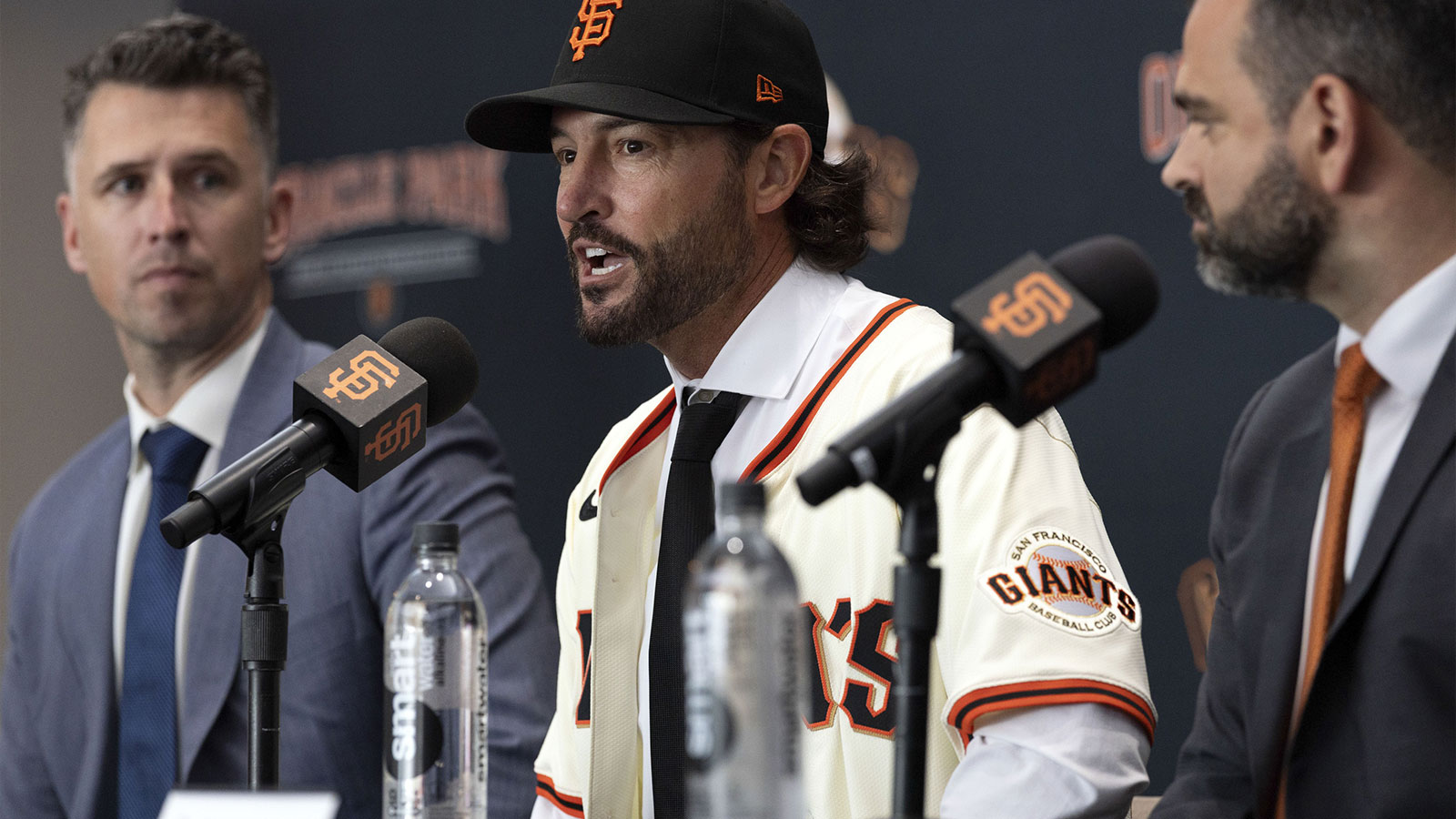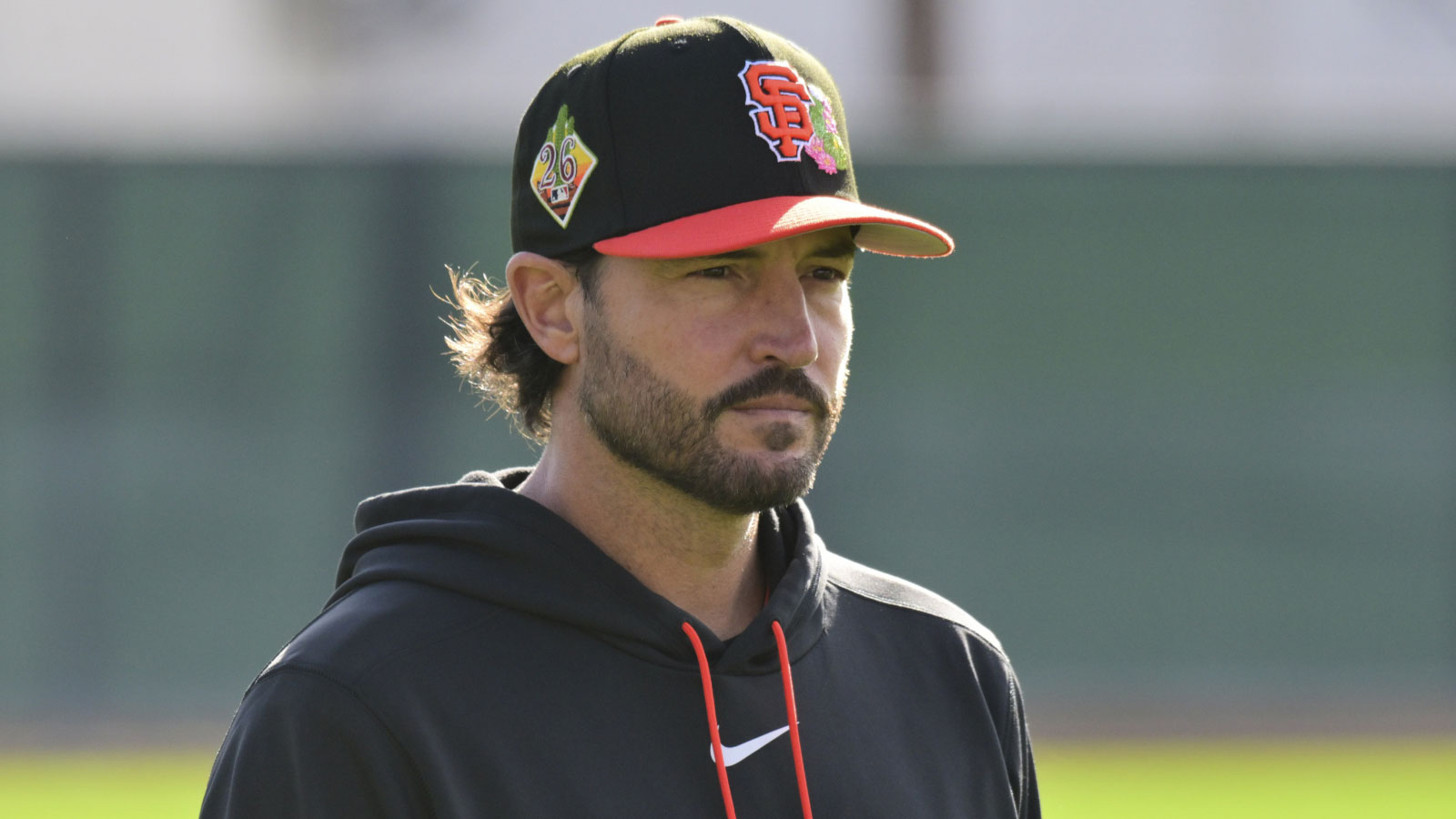In the wake of the San Francisco Giants' decision to part ways with President of Baseball Operations Farhan Zaidi, former Giants All-Star and legend Will Clark delivered a fiery and unfiltered response that reverberated through the organization and its fan base. Known for his fiery passion both on and off the field, Clark didn’t hold back during a recent appearance on No Filter Net, where he expressed his frustrations with the organization's current state and its reliance on analytics.
WILL CLARK: "All you statistical guys that are in the f****n' San Francisco Giants organization, you better watch your a** too because you f***ers might be gone as well."
(Via @NoFilterNet) pic.twitter.com/GpHAZx9ATe
— KNBR (@KNBR) October 7, 2024
Clark’s comments, delivered at a pivotal moment for the Giants, carry significant weight. The team, despite Zaidi’s efforts to integrate advanced statistical analysis, has been struggling to maintain consistency, and made the postseason one time during his six-year tenure. Clark's perspective as a six-time All-Star and legend of the game, adds a layer of importance to the ongoing debate about the role of analytics in baseball.
“All you statistical guys that are in the fin' San Francisco Giants organization, you better watch your a*s too because you f***ers might be gone as well,” Clark declared as captured on X via KNBR, signaling potential further upheavals within the team’s front office.
Farhan Zaidi was nothing more than mediocre

The passionate outburst from Clark highlights a growing tension within baseball between traditional approaches to the game and the newer, data-driven strategies that many teams have adopted over the last two decades. It also highlights the extreme mediocrity during Zaidi's tenure with the club.
Clark, a pivotal figure in the Giants’ lineup during the late 1980s and early 1990s, represents a voice for the traditionalist perspective, advocating for a balance or reassessment of how heavily analytics should weigh in baseball decision-making.
Another takeaway from his rant was the fact that Zaidi would overrule manager Bob Melvin on his lineup. He goes on to explain how managers like Melvin and former Giants manager Bruce Bochy have managed for so long. They know the game. With Buster Posey taking the helm for the Giants, Clark expects things to go back to the way they were in the championship years, where Posey was the face of the franchise as a player.
The firing of Zaidi was a significant move by the Giants, indicating a possible shift in direction or philosophy moving forward. It also opens up a broader debate on the effectiveness of analytics in sports management, especially in a franchise as storied as the Giants.
While statistical analysis has undeniably transformed many aspects of baseball, from scouting and player development to in-game decision-making, Clark’s comments underscore a sentiment felt by some within the sport that the human element and traditional scouting insights still hold substantial value.
As the Giants navigate this period of transition, the reaction from a respected former player like Clark could influence the organization's future decisions. It raises questions about how the team will balance innovative strategies with the foundational principles that have historically shaped the sport.
Ultimately, Clark’s fiery comments reflect more than just dissatisfaction with a single executive's performance; they tap into a deeper discourse on the future of baseball management and the ongoing struggle to find the right mix of old-school grit and new-age analytics. As the Giants reassess their strategic direction, the baseball world will be watching closely to see how this storied franchise evolves in response to one of its most turbulent periods.




















